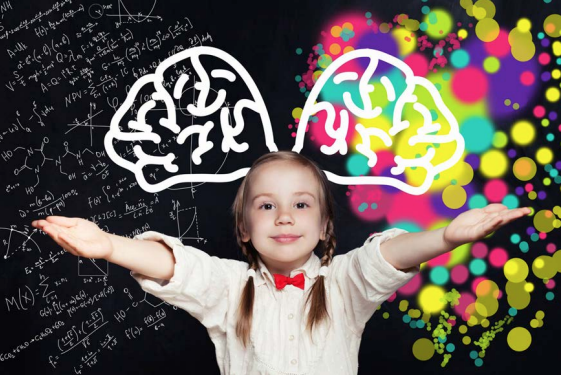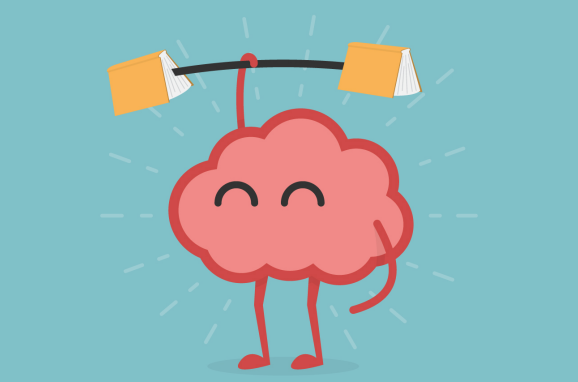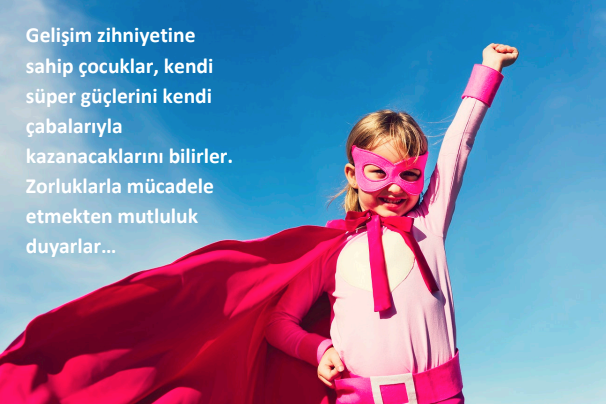What is a developmental mindset? The importance of a developmental mindset in early childhood…

“Test scores and success measures tell you where a child is, but not where a child might be,” says Carol Dweck.
Dweck, a professor at Stanford University and an American psychologist who has made prominent studies in the field of developmental psychology, describes the “Development Mentality” theory, which has been widely spoken and widely applied in recent years, especially in the education and business world, in her book “Use Your Mind in the Right Way”. In this best-selling book, recommended by Bill Gates, the owner of Microsoft, Dweck says that the common characteristics of successful people are “their mindset rather than the opportunities and abilities they have”. It examines the concepts of “Development Mentality” and “Fixed Mindset”. People with a growth mindset see life as a learning-growth-development-maturity journey. They know that intelligence alone is not enough for success. According to these people, who are goal-oriented and self-confident, who know how to think with realistic optimism, we can achieve success by striving with determination and learning from mistakes. Fixed-minded people, on the other hand, believe that talents are innate and can never be developed. According to them, you are either successful or unsuccessful at a job. They are afraid of mistakes. What other people think worries them.
As parents and educators, we can take very important steps starting from infancy to instill a developmental mindset in our children. We can gain a developmental mentality at any age, but it is always best to start life with a solid foundation.
Developmental mindset in early childhood

The human brain can be compared to a muscle developed with exercise or a moldable play dough. From the moment we are born, all the positive and negative interactions we have, the thoughts we think and the emotions we feel shape the architecture of our brain. During the first 1000 days of life, more than 700 neural connections are quickly formed through interactions. According to the Center for the Developing Child at Harvard University, the first five years of life are crucial to brain development and a child’s success in later life.
Our early years literally build the brain from scratch. We parents and educators (caregivers and anyone who contributes to a child’s development) have a powerful influence on a child’s sensitive mind and future learning. The actions we take, the reactions we give and the words we use are quickly adopted by young children, thus forming a certain mindset. That’s why these first years, when the basis of thinking and personality development is formed, are the most critical years when we need to work to establish a developmental mindset in our children.

According to Dweck…
According to Dweck, parents and educators can motivate children to develop a growth mindset by teaching them the power of “yet”. For example, instead of “You haven’t succeeded”, they can say “You haven’t succeeded yet, but with more practice, you can reach your goal. I will always be there to support you,” or “You are right. This task is really tough… It’s tough, but you can tackle the challenges.” They can foster a growth mindset by adopting an empathetic, realistic and optimistic approach like this.
A parent who often praises their child with exaggerated language such as “You are very smart” or “You are very smart”, or a parent who criticizes them with negative expressions, unwittingly triggers a fixed mindset in their child. When the child is “very smart” but fails to succeed, he experiences great disappointment and blames himself. He worries about not succeeding, “What will people think if I fail again? Will my family be upset? Will my parents still love me? Or am I not as smart as they think?” The child develops negative thoughts like this. Instead of putting limits on the child by judging or exaggeratingly praising his intelligence, Carol Dweck emphasizes the importance of praising the child’s effort rather than the results, by showing realistic and motivating approaches such as, “I know how hard you’ve worked for this. I congratulate you for your effort. Slowly and step by step you are moving towards your goal. Bravo to you!” It In this way, the child learns that he cannot reach his goal without his own determination.
What about you? What way of thinking do you think you have?
The first step in giving our children a growth mindset is to really try to understand this mindset, starting from ourselves. Let’s ask ourselves: “Is it my priority to be approved by others, to be applauded, and to achieve great results or to challenge difficulties and mistakes?”
In summary, people with a growth mindset…
According to Dweck, a person with a growth mindset is one who uses his mind correctly. In summary, the “development mentality” is a way of thinking that focuses on continuous learning and development throughout life. It is the belief that our intelligence and abilities can be increased and developed with effort and the right strategies. A fixed mindset is a belief that our intelligence and abilities are more or less stable and unchanging. A person with a growth mindset is not afraid of failure, loves to challenge challenges, is not afraid to take sensible risks, and is a problem solver. He has no intention of proving himself to others. First of all, he competes with himself. He is self-confident and aware of his shortcomings. He knows that he can improve by learning from his mistakes and by trying, so that he can strengthen his brain at the same time. By constantly learning, he focuses on improving his intelligence and using his mind better. He is the person who thinks he is in the learning process, not the person who gets discouraged by failure.

Children with a developmental mindset know that it will not be easy to achieve success and that they can develop their brain power, become the architects of their own brains, and reach their goals only if they make an effort with determination. Also, instead of worrying about whether they are smart enough, they know that they can become smarter simply by working, learning and questioning, and that they will gain their own superpowers through their own efforts.
The main task that falls to us parents and educators is to act with a developmental mentality, to teach our children the “Development Mentality” and to guide them to develop their brain power.
Watch: The Power of “Yet”
In a talk she gave on the TEDx platform in 2014, Carol Dweck offers us two ways to think about a problem that is a little difficult to solve: “Are you not smart enough to solve it or just haven’t figured it out yet?” In this talk, which has been watched more than 13 million times and is one of the most popular TEDx presentations to date, she explains the growth mindset on the axis of a magic word – “yet”. She presents the power of saying “I haven’t succeeded yet” instead of “I haven’t succeeded” with examples and analysis.
We strongly recommend that you watch this inspiring talk by Dweck – using the subtitle options if you need it – TED TALKS
